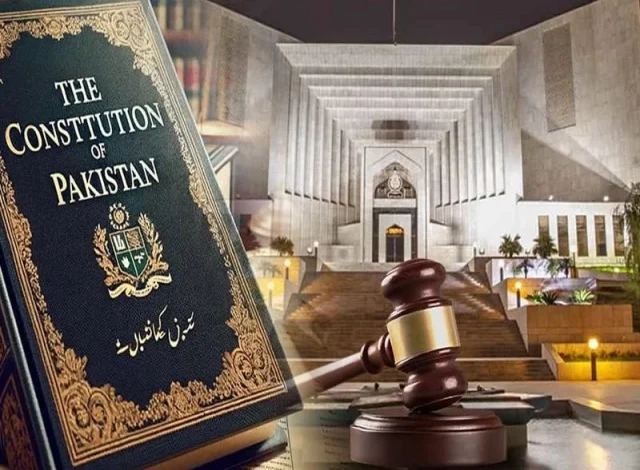
High Courts Without Permanent Chief Justices Amid Growing Judicial Adhocism
Pakistan’s superior judiciary continues to grapple with a deepening crisis of leadership, as several high courts remain without permanent chief justices. The delay, widely viewed as a result of increasing executive influence and judicial adhocism following the 26th Constitutional Amendment, has drawn concern from legal experts and bar associations across the country.
Despite the lapse of four months, the Judicial Commission of Pakistan (JCP) has not convened to appoint permanent chief justices for the Sindh High Court, Peshawar High Court, and Islamabad High Court. The Balochistan High Court also remained without a permanent chief justice for over three months before Justice Muhammad Ejaz Swati was appointed on May 19—only to retire two weeks later on June 5.
Justice Rozi Khan Barech, second in BHC’s seniority list, has now assumed the role of acting chief justice, continuing the trend of temporary appointments.
Delay Rooted in Executive Influence
Justice Sardar Sarfraz Dogar has served as acting chief justice of the Islamabad High Court (IHC) for four months, with his seniority currently under challenge in the Supreme Court. While legal proceedings may explain the IHC delay, no clear justification has emerged for the continued delay in appointing permanent chief justices in the other high courts.
Observers note that this marks a departure from the precedent set post-18th Amendment, under which the JCP rarely delayed appointments for such long durations.
The passage of the 26th Amendment has granted the executive a dominant role in judicial appointments—raising alarms over the independence of the judiciary. Despite these concerns, the judiciary, including Chief Justice of Pakistan Yahya Afridi, has yet to assert its role in balancing this influence.
During Justice Afridi’s tenure, nearly 50 judges have been appointed, many reportedly based on executive nominations. Legal experts argue that no judge can currently become a permanent chief justice without government approval, allowing the executive to maintain a strong grip on key judicial appointments.
Deliberate Delays, Political Calculations
The government reportedly influenced the elevation of Justice Malik Shahzad Ahmad Khan to the Supreme Court to prevent his appointment as Lahore High Court (LHC) chief justice. Currently, the executive appears hesitant to elevate LHC Chief Justice Alia Neelum, with sources suggesting the Punjab government is comfortable with the current judicial environment.
In Sindh, insiders indicate the PPP will determine the next SHC chief justice. However, the party remains divided on its choice.
Meanwhile, Justice Syed Mohammad Attique Shah, second in seniority at PHC, has been serving as acting chief justice. Legal circles say that Justice Ejaz Anwar, despite being the senior-most PHC judge, has been sidelined due to his strained relationship with influential stakeholders.
Similarly, Justice Muhammad Kamran Khan Mulakhail was once considered for elevation but reportedly fell victim to judicial politics and failed to receive clearance from power corridors.
Legal Community Voices Alarm
Prominent lawyer Abdul Moiz Jaferii criticized the delay in IHC appointments, stating:
“It’s a way to continue the farce that is the new Dogar court. There’s a bunch of good judges there, so let’s keep them all hanging and distracted.”
Regarding Sindh, Jaferii added:
“It’s like dangling a perpetual carrot in front of senior judges. Keep the corner office empty, and everyone stays in the race—not knowing how long it is or what it takes to win. That uncertainty is exactly what they want.”
Legal experts and bar leaders believe this prolonged adhocism compromises judicial independence and governance. They urge the senior judiciary—particularly those who have benefited from the current appointment system—to take steps to restore institutional credibility and ensure that high courts are no longer left in limbo.






